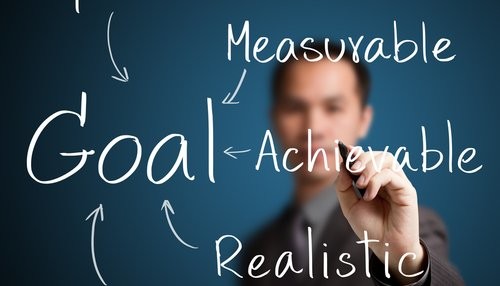The reasonable man adapts himself to the world; the unreasonable one persists in trying to adapt the world to himself. Therefore all progress depends on the unreasonable man.
– George Bernard Shaw –
In 1961, President John F. Kennedy announced in a joint session of Congress the unbelievable goal of sending an American to the Moon before the end of the decade. The goal was outrageous and ridiculously ambitious. And just eight years later Neil Armstrong became the first man to walk on the moon.

When we are young we all believe we can fly to the moon, become President of the United States or King of the world. We dream of building a time machine or winning the Indy 500. Nothing seems beyond our reach and very little seems unattainable.
I had those same dreams, big dreams, outrageous ambitions.
And so I started setting goals. It seemed like a good thing to do at the time. Goals gave my life direction, focus and purpose, or so I thought. I thought about goals, I studied goals, I looked at ways to achieve goals, and I focused on how to make that happen. And I succeeded.
Soon I came across the process of setting SMART goals. I found different explanations of the SMART goal process. The process was defined as:
Some substitute different words for the “A” and “R” in SMART, such as attainable or relevant. Nearly every definition has some limiting definition, such as realistic, achievable, reasonable or attainable. And I soon started to wonder if achievable and realistic may too often become synonymous with mundane, monotonous, unimaginative or routine. In other words, set goals, but don’t be too ambitious, or outrageous, or unbelievable.
And so now I am wondering, what could possibly be wrong with setting wildy unreasonable, overly ambitious or ridiculously optimistic goals? If ever there was a time for unreasonable goals, we are living in that time. The pace of change in the last 50 years has been wildly unrealistic. The opportunities for continued change and progress present us with a host of unreasonable possibilities.
Steve Jobs and Paul Wozniak had an outrageous goal of putting a computer in every home at a time when most computers were the size of an average home. Walt Disney transformed the way we think about entertainment because his goals were outlandish and uncompromising. What outrageous goal have you dreamed of and discarded because it didn’t seem reasonable or achievable. Our world has been transformed by those who realized that the limitations placed on us by “reasonable” and well meaning friends may be nothing more than an expression of their fears and doubts.
Outrageous goals have the power to motivate us to take outrageous risks, work outrageous hours and commit to outrageous effort to succeed. We should all reserve the right to dream big! Why should any goal seem unattainable?
But what if we fail, as some surely will. With all endeavors we run the risk of failure. With each setback and every failure, however, lie the seeds that will guide us to future success.
An outrageous goal need not be to start a world changing company, or be the first person to go to Mars, it could be to lose 20 pounds, run a 10K race, or a half marathon. It may be to go fly fishing in Montana or merely to spend more quality time with your family.
Whatever your big dream is, go ahead and plan for it. Set goals to attain it. Break it down into smaller goals, bite-sized pieces, and then dig in. You may not end up on the moon, but you might find yourself finishing a race.
Scott Murray is a Coach and Consultant committed to helping individuals and organizations achieve outrageous goals for both individuals and organizations, through a process of providing outrageous service in both our business and personal lives.

